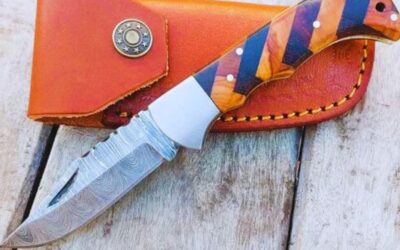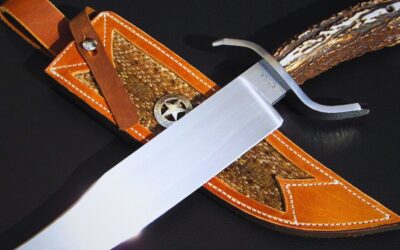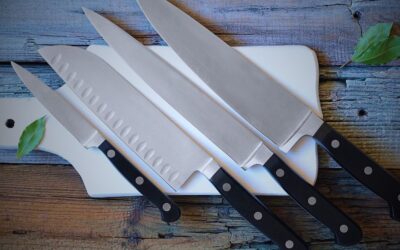Choosing the perfect Damascus steel pocket knife can feel like navigating a maze, but with the right knowledge, you can make an informed decision. This guide will walk you through everything you need to know to find the best Damascus steel pocket knife for your needs.
What is Damascus Steel?
Damascus steel is a type of steel known for its distinctive wavy patterns and exceptional durability. Historically, it was made using wootz steel, which originated in ancient India and was traded to the Middle East, where it gained fame. Today, modern Damascus steel is often pattern-welded, combining different steels to achieve the same visual and structural characteristics.
Importance of a Good Pocket Knife
A reliable pocket knife is an essential tool for everyday carry (EDC). Whether you’re an outdoor enthusiast, a craftsman, or just someone who values preparedness, a good pocket knife can make a significant difference in your daily tasks.
History of Damascus Steel
Origins and Evolution
Damascus steel dates back to the medieval period, renowned for its strength and ability to hold a sharp edge. The original Damascus steel, made from wootz steel, was highly sought after for its performance and beauty.
Traditional vs. Modern Damascus Steel
Traditional Damascus steel was made through a complex process of smelting and forging. Modern Damascus steel, however, is typically created through pattern welding, where layers of steel are forge-welded and folded to produce the iconic patterns.
Why Choose a Damascus Steel Pocket Knife?
Unique Patterns and Aesthetics
One of the main attractions of Damascus steel is its striking appearance. The unique, swirling patterns are not just for show—they’re a result of the complex forging process and make each knife one-of-a-kind.
Strength and Durability
Damascus steel knives are known for their exceptional toughness and edge retention. The combination of different steels can produce a blade that is both hard and flexible, offering a balanced performance.
Key Features to Consider
Blade Design
Drop Point
The drop point blade is a versatile design, excellent for general use and outdoor activities. Its convex curve offers a strong tip and ample cutting edge.
Clip Point
The clip point blade features a concave curve on the spine, creating a sharp, controllable point ideal for precision tasks.
Tanto
The tanto blade is characterized by its angular, almost chisel-like point, providing superior piercing ability and strength at the tip.
Handle Material
Wood
Wood handles offer an exemplary look and an agreeable hold. They can be crafted from various types of wood, each providing different aesthetics and textures.
Bone
Bone handles are traditional and durable, often featuring intricate carvings and designs that enhance the knife’s visual appeal.
Synthetic
Synthetic handles, such as G-10 or Micarta, are known for their resilience and grip, making them suitable for heavy-duty use.
Blade Length
The ideal blade length for a pocket knife depends on your intended use. Smaller blades (2.5-3.5 inches) are perfect for everyday tasks, while longer blades (3.5-4.5 inches) are better for outdoor and survival applications.
Understanding Damascus Steel
Forging Process
The process of creating Damascus steel involves layering different types of steel and forge-welding them together. This is followed by folding and twisting the metal to produce the distinctive patterns.
Types of Damascus Steel
Wootz Damascus
Wootz Damascus, the original form, is made from high-carbon steel ingots known as wootz. This type is rare and highly prized by collectors.
Pattern-Welded Damascus
Pattern-welded Damascus is created by layering different steels, forging them together, and then etching to reveal the intricate patterns. This is the most common type available today.
Evaluating Blade Quality
Hardness and Edge Retention
A good Damascus steel blade should be hard enough to hold a sharp edge but not so hard that it becomes brittle. Look for a balance, often measured by the Rockwell hardness scale.
Corrosion Resistance
While Damascus steel is generally more resistant to corrosion than plain carbon steel, it still requires proper care. Some modern Damascus blades incorporate stainless steel layers to enhance rust resistance.
Maintenance Requirements
Regular maintenance, including cleaning, oiling, and sharpening, is crucial to keep your Damascus steel knife in top condition. Neglect can lead to rust and deterioration.
Ergonomics and Usability
Handle Comfort
The handle should fit comfortably in your hand, providing a secure grip without causing fatigue during prolonged use.
Weight Balance
A well-balanced knife offers better control and reduces strain on your hand during use. The balance point should ideally be near the handle’s front.
Opening Mechanism
Consider the opening mechanism that suits your needs. Options include manual opening, assisted opening, and automatic (switchblade) mechanisms.
Safety Features
Locking Mechanisms
Liner Lock
A liner lock uses a spring-loaded liner inside the handle to lock the blade open. It’s easy to operate and reliable for one-handed use.
Frame Lock
A frame lock is similar to a liner lock but uses a part of the handle frame itself to lock the blade. It provides a stronger lockup.
Lockback
A lockback mechanism uses a spine-mounted lock to secure the blade. It’s very strong and typically requires two hands to close.
Finger Guards
Finger guards or choils can help prevent your hand from slipping onto the blade, enhancing safety during use.
Aesthetics and Personal Preference
Custom Designs
Many Damascus steel knives are available with custom designs, allowing you to choose a knife that reflects your personal style.
Engravings and Embellishments
Engravings, inlays, and other embellishments can add a unique touch to your knife, making it not just a tool but a piece of art.
Price vs. Quality
Budget Considerations
Damascus steel pocket knives can range from affordable to extremely expensive. Decide your spending plan and search for the best quality inside that reach.
Premium Options
High-end Damascus steel knives often feature superior craftsmanship, rare materials, and intricate designs. They are an investment but offer unmatched quality.
Brand Reputation
Trusted Brands
Research and choose knives from reputable brands known for their quality and craftsmanship.
Customer Reviews and Testimonials
Customer reviews and testimonials can provide valuable insights into the knife’s performance and durability from real-world users.
Where to Buy Damascus Steel Pocket Knives
Online Stores
Online retailers offer a wide variety of Damascus steel pocket knives, often with detailed descriptions and customer reviews.
Physical Retailers
Visiting a physical store allows you to handle the knives and get a feel for their weight, balance, and ergonomics before making a purchase.
Caring for Your Damascus Steel Pocket Knife
Cleaning and Oiling
Regularly clean your knife with mild soap and water, and dry it thoroughly. Apply a light layer of oil to the sharp edge to forestall rust.
Sharpening Tips
Use a whetstone or sharpening system to maintain a sharp edge. Avoid using electric sharpeners, which can damage the blade.
Common Mistakes to Avoid
Buying Based on Looks Alone
While aesthetics are important, don’t choose a knife solely based on its appearance. Consider functionality and performance.
Neglecting Maintenance
Proper maintenance is essential to keep your Damascus steel pocket knife in top condition. Neglecting care can lead to rust and dullness.
Conclusion
Choosing the best Damascus steel pocket knife involves considering various factors, from blade design to handle material, and from ergonomics to aesthetics. By understanding these elements, you can find a knife that not only looks stunning but also performs exceptionally well in any situation.
FAQs
What makes Damascus steel special?
Damascus steel is renowned for its unique patterns, exceptional strength, and ability to hold a sharp edge.
How do I sharpen a Damascus steel blade?
Use a whetstone or a high-quality sharpening system. Avoid electric sharpeners, as they can damage the blade.
Are Damascus steel knives rust-resistant?
While more resistant than plain carbon steel, Damascus steel still requires proper care to prevent rust.
What is the best handle material for a Damascus steel pocket knife?
The best handle material depends on personal preference and intended use. Wood offers a classic look, while synthetic materials provide durability.
How can I tell if my Damascus steel knife is authentic?
Authentic Damascus steel knives have unique, wavy patterns and are often accompanied by documentation from reputable manufacturers.



0 Comments